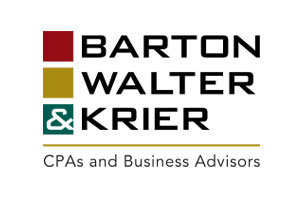How New COVID-19 Stimulus May Affect Your Taxes
January 28, 2021 | Barton Walter and KrierOn December 27, 2020, President Trump signed the Consolidated Appropriations Act (CAA), a spending plan for fiscal 2021 that includes additional economic relief and stimulus for individuals and businesses amid the COVID-19 pandemic. The new legislation contains provisions for small businesses that could significantly reduce federal income tax bills. Read on as we discuss how new COVID-19 stimulus laws may affect your taxes.
Help for Cash-Strapped Individuals and Firms
Included in the new legislation is another round of “recovery rebate” payments to individuals as well as additional funding for the Paycheck Protection Program (PPP) for businesses. According to the IRS, the economic impact payment sent to individuals is not considered income and will not reduce a taxpayer’s refund or increase the amount they owe when filing their 2020 or 2021 tax returns. Moreover, the Second Draw PPP loan is tax-exempt and not taxable income for businesses, as long as the funds are used for approved expenses such as payroll, mortgage interest, rent, or utilities.
Tax-Related Provisions for Individuals
The legislation includes some tax relief as well. Some of the provisions include:
- Permanent reduction of adjusted gross income (AGI) floor to 7.5 percent for medical expense deductions
- Extended nonitemizer deduction for up to $300 of cash donations ($600 for married couples filing jointly) to qualified charities through 2021
- Extended 100 percent of AGI deduction limit for cash donations to qualified charities through 2021
- Extended exclusion for certain employer payments of student loans through 2025
Tax-Related Provisions for Businesses
- Clarification of tax treatment for PPP loans, certain loan forgiveness, and other financial assistance under COVID-19 legislation
- Extended payroll tax credits for paid leave required under the Families First Coronavirus Response Act through March 2021
- Extended and expanded tax credits for retaining employees under the Coronavirus Aid, Relief and Economic Security (CARES) Act through June 2021
- 100 percent business meals deduction for food and beverages provided by restaurants in 2021 and 2022
- Extended Work Opportunity credit through 2025
- Extended New Markets credit through 2025
- Extended family medical leave credit through 2025
Do any or all of these provisions apply to your business? Contact your Barton, Walter, & Krier tax advisor for more information on how the CAA legislation may affect you.

